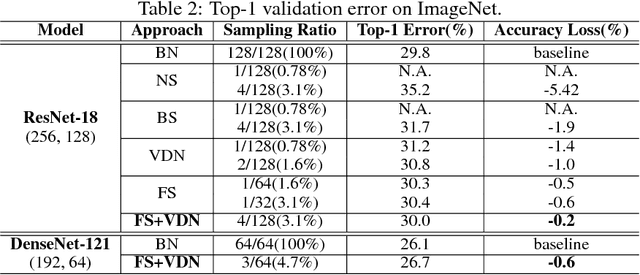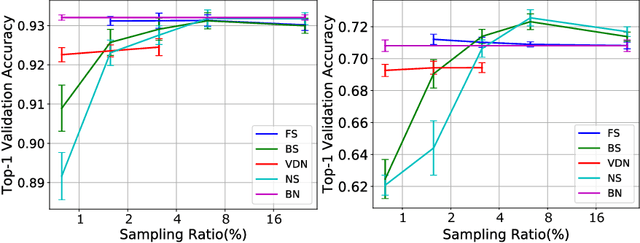Batch Normalization Sampling
Paper and Code
Nov 02, 2018



Deep Neural Networks (DNNs) thrive in recent years in which Batch Normalization (BN) plays an indispensable role. However, it has been observed that BN is costly due to the reduction operations. In this paper, we propose alleviating this problem through sampling only a small fraction of data for normalization at each iteration. Specifically, we model it as a statistical sampling problem and identify that by sampling less correlated data, we can largely reduce the requirement of the number of data for statistics estimation in BN, which directly simplifies the reduction operations. Based on this conclusion, we propose two sampling strategies, "Batch Sampling" (randomly select several samples from each batch) and "Feature Sampling" (randomly select a small patch from each feature map of all samples), that take both computational efficiency and sample correlation into consideration. Furthermore, we introduce an extremely simple variant of BN, termed as Virtual Dataset Normalization (VDN), that can normalize the activations well with few synthetical random samples. All the proposed methods are evaluated on various datasets and networks, where an overall training speedup by up to 20% on GPU is practically achieved without the support of any specialized libraries, and the loss on accuracy and convergence rate are negligible. Finally, we extend our work to the "micro-batch normalization" problem and yield comparable performance with existing approaches at the case of tiny batch size.
 Add to Chrome
Add to Chrome Add to Firefox
Add to Firefox Add to Edge
Add to Edge